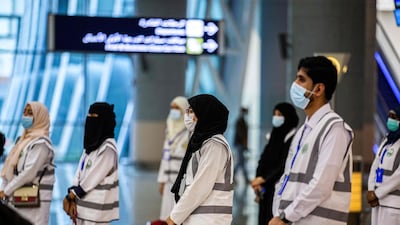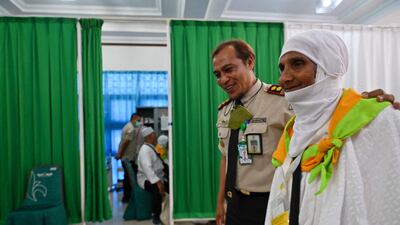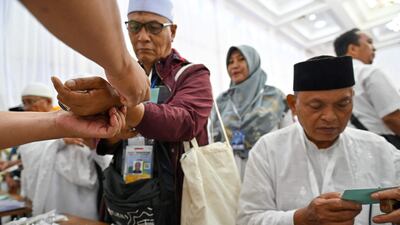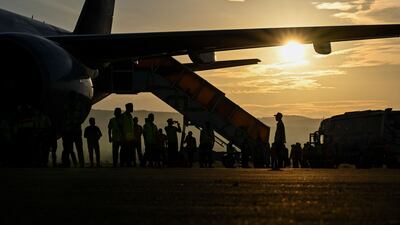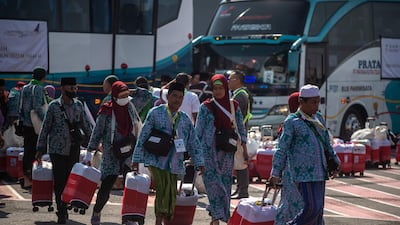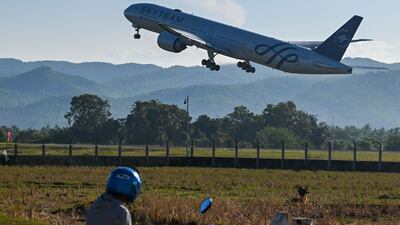Saudi Arabia's Hajj Ministry and health authorities have increased efforts to provide healthcare services, including operations that can cost thousands of dollars, free of charge this year.
Authorities prepared 172 hospitals and health centres at holy sites in Makkah and Madinah to serve Hajj pilgrims this year.
The Saudi health ministry this week said that all preparations have been made to provide health services to pilgrims at 14 air, land and seaports.
Statistics gathered by the Hajj Committee responsible for welcoming pilgrims, said that the number of worshippers who had arrived in Madinah by Wednesday had reached 557,401.
This year 32 hospitals, including field hospitals, supported by 140 health centres, are functional and serving pilgrims coming in for Hajj this year.
The hospital bed capacity this year is 6,132,761 according to the health ministry.
“Ambulances have been positioned to bring in any casualties or even minor cases such as sunstroke for pilgrims throughout Hajj. Arafat especially will be extremely hot so you always have elderly people struggling with the sun,” said Alaa Hashem, a paramedic in Jeddah.
“I will be joining the team on the June 24.
“We have major cases with surgeries that are very expensive and not every pilgrim is able to afford them, so the state provides them for free. All doctors and medical staff are positioned to help pilgrims who come for Hajj,” she told The National.
The ministry said it will also provide virtual assistance and services for pilgrims through the virtual hospital, after its success during last year's Hajj season.
This year, several virtual clinics were added in the holy sites and Madinah.
There will be 32,000 health practitioners on duty during Hajj this year.
Earlier this week, the Saudi Press Agency reported that more than 18,000 pilgrims have received medical care in Madinah.
Health services provided included open-heart surgery, dialyses, endoscopies and catheterisations.
More than 16,000 people were treated at health centres near the Prophet’s Mosque in Madinah and about 2,000 were treated at local hospitals, the ministry said.
A dialysis hall in Madinah, equipped with the latest medical equipment and medical staff, is using 10 devices to provide more than 40 dialysis sessions per day.
The service is provided free of charge to all pilgrims.
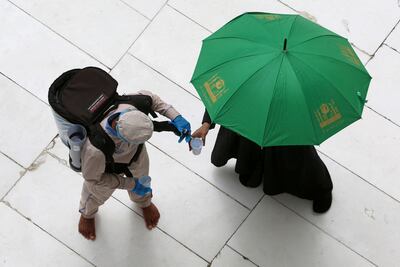
Medical assistance centres and mobile medical vehicles have been equipped and set up for the Mashaer and Haramain train, as the ministry has further intensified its efforts in the central area of the Grand Mosque. The Mashaer trains operate between Mina, Arafat and Muzdalifah, while the Haramain trains transport pilgrims between Madinah, Jeddah and Makkah.
A fleet of 190 ambulances and 16 emergency centres are attached to the Jamaraat bridge facility in Mina. The pedestrian bridge is the site of a huge influx of pilgrims at set times in Mina, when pilgrims perform the Hajj ritual of the Stoning of the Devil.
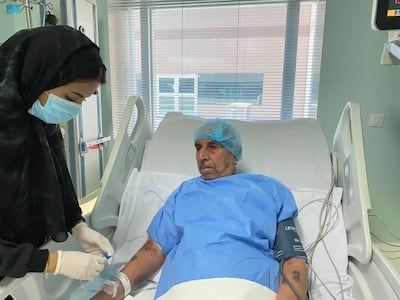
On Tuesday, a medical team at King Abdullah Medical City helped to save the life of an Iraqi pilgrim in his eighties, who suffered from a heart attack.
Hatem Al Masoudi, from Makkah Health Cluster, said the facility received the request through its hotline service and that the effective and efficient speed of communication and co-ordination played a prominent role in saving the pilgrim's life.
